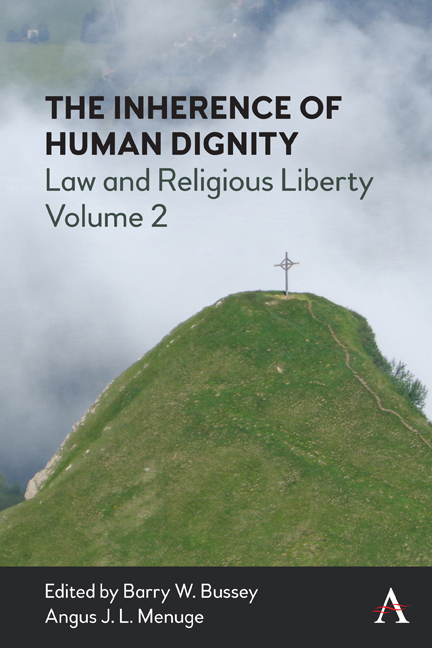Chapter Seven - Religious Liberty and the Human Good
Published online by Cambridge University Press: 24 February 2022
Summary
The starting points of all ethical reflection are those fundamental and irreducible aspects of the well-being and fulfillment of human persons that some philosophers refer to as ‘basic human goods’ (see Finnis 2011, chs. 3–4). These goods – as more than merely instrumental ends or purposes – are the subjects of the very first principles of practical reason that control all rational thinking with a view to acting, whether the acts performed are, in the end, properly judged to be morally good or bad (Grisez 1965). The first principles of practical reason direct our choosing towards what is rationally desirable because humanly fulfilling (and therefore intelligibly available to choice), and away from their privations (Grisez 1965). It is, in the end, the integral directiveness of these principles that provides the criterion (or, when specified, the set of criteria – viz. the moral norms) by which it is possible rationally to distinguish right from wrong – what is morally good from what is morally bad – including what is just and unjust (Finnis 2011, 450–452). Morally good choices are choices that are in line with the various fundamental aspects of human well-being and fulfillment integrally conceived; morally bad choices are choices that are not.
To say the very abstract things I’ve just said is simply to spell out philosophically the point made by Martin Luther King in his Letter from Birmingham Jail about just and unjust laws – laws that honor people's rights and those that violate them. You will, perhaps, recall that the great civil rights champion anticipated a challenge to the moral goodness of the acts of civil disobedience that landed him behind bars in Birmingham. He anticipated his critics asking: How can you, Dr. King, engage in willful law breaking, when you yourself had stressed the importance of obedience to law in demanding that officials of the southern states conform to the Supreme Court's de-segregation ruling in the case of Brown v. Board of Education? Let's listen to King's response to the challenge:
The answer [he says] lies in the fact that there are two types of laws: just and unjust.
- Type
- Chapter
- Information
- The Inherence of Human DignityLaw and Religious Liberty, Volume 2, pp. 107 - 114Publisher: Anthem PressPrint publication year: 2021



